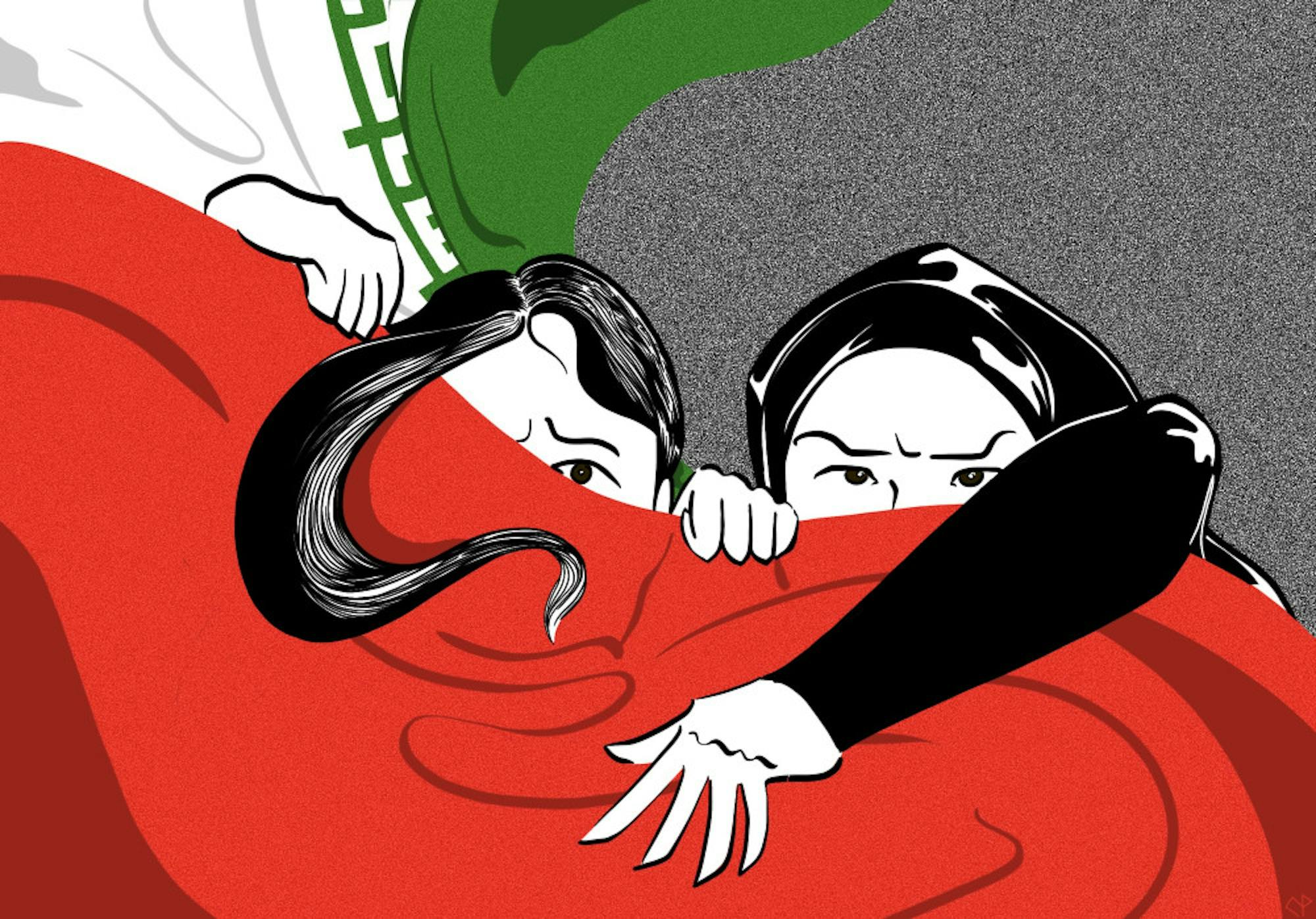Mahsa Amini, a 22-year-old Kurdish woman, died in police custody after having a “heart attack” and falling into a coma. She was arrested by the Iranian morality police for wearing her hijab “improperly” and violating the “dress code.” Although the police denied the allegations, witnesses have reported that Amini was beaten in the police van. Iranian authorities stated “heart attack” as the cause for her “unfortunate death;” however, her family mentioned that she had no preexisting heart condition.
Reactions to Amini’s death have quickly intensified on social media with the photographs taken of Amini in the hospital. Her death fueled both nationwide and international protests filled with grief, anger and bravery. Women are burning their headscarves, cutting their hair and chanting anti-regime slogans such as “death to the dictator” and “justice, liberty and no to mandatory hijab” around the streets of Tehran. They are reacting to Iran’s oppressive regime, which has obligated women to comply with a certain dress code — wearing a headscarf and loose-fitting clothing in public to conceal their body lines — since the 1979 Islamic Revolution. The Iranian government had announced their new plan for using technology to identify women who don’t meet the dress requirement on public transportation a few weeks before Amini’s death.
Morality police (Gasht-e Ershad) are given the responsibility and power to ensure women are complying with the dress regulations. However, their enforcement of the power is arbitrary, and punishments can range from a verbal warning to physical violence. During the protests this week, the security forces in Tehran and Kerman have killed at least nine people.
In large-scale protests, women are demanding that the current totalitarian regime comes to an end. They are fighting for their own safety, autonomy and freedom. The outrage and anti-regime slogans in the protests communicate the intense anger toward the government for the decades Iranian women have spent subdued and without freedom.
The nationwide protests rely heavily on social media for spreading information, sharing footage, raising awareness and gaining an international audience. The Iranian government shut down the internet and social media access on Thursday, which raises safety concerns for protesters in Iran. Although the Iranian officials stayed silent about the allegations regarding the internet shutdown, Meta has confirmed that there have been access difficulties to WhatsApp and Instagram. This mirrors the internet shutdown of 2019, a reaction to protests against a spike in gas prices, during which hundreds of Iranians were killed. Considering the role of the internet in today’s world, this was clearly an attempt to slow down the flow of footage from the protests against the regime and ultimately stop it.
Demonstrations are not limited to Tehran but took place in many cities around the globe, such as Boston, Istanbul, London, Paris and cities in New Zealand. Protestors are paying tributes, expressing their grief for Amini’s death and their deep anger for who is responsible. They are supporting Iranian women for standing up against the oppressive regime and fighting for their freedom in their marches. Women from all around the world are standing in solidarity with Iranian women and rising up for their confiscated freedom. Demonstrators all share a common goal: demanding a democratic, just Iranian society where women are safe and have the right to make decisions about their own bodies.
The current conflict has arisen due to the oppressive, patriarchal and pervasive regime in Iran. The roots of the problem lie in the system itself, and as individuals, we can not reform all these norms with a simple solution. Changing or rebuilding cultural norms necessitates a persistent and long-term commitment to building awareness and taking courageous stances. We must pursue an accountable, transparent and democratic society where the rule of law supports the fundamental rights of women. Educating ourselves and others about what is happening in Iran is crucial; we must help Iranian women’s voices be heard around the globe.
The bravery of Iranian women is breathtaking. Their fight against the oppressive regime and the “morality police,” who are granted the power to chase, criticize and violate women, requires courage and determination. It is the 21st century — we should be long past the days when women are kept from making decisions about their own clothes and bodies. In order to stand with Iranian women, we must tell their stories and amplify their voices. We cannot let them be cut off from the world.






